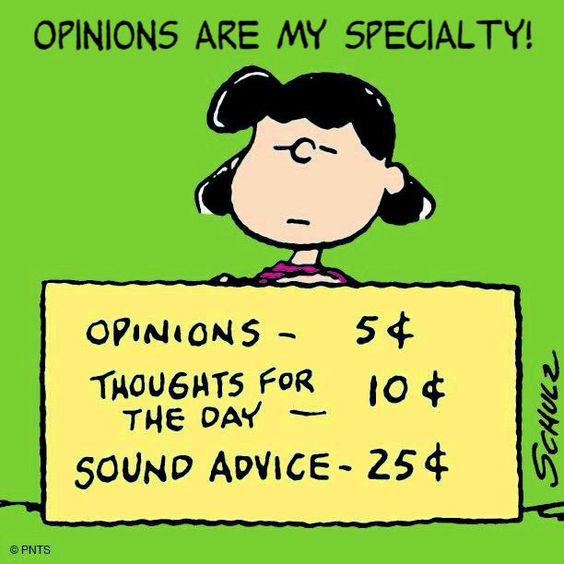Written by: Roy Browning, JMC Brands
“You know what you should do…”
Have you ever heard that phrase from someone? I bet if you’re anything like me, you either listened to or rebuked those words depending on who it came from. That super successful friend that you’ve always wanted to be like said those words and you jumped all over the advice. The random stranger said those words and you talked to all your friends about the weirdo who needs to stay out of your business. Sound even remotely familiar?
The funny part about that phrase is that, no matter who is saying it, they probably don’t know the whole story.
And with a slight change you can go from getting advice to getting so much more. I will share this at the very end, so keep reading!
 What’s Wrong With Giving Advice?
What’s Wrong With Giving Advice?
Here’s the problem with giving advice. Who’s fault is it if the advice turns out poorly? I’ll give you a hint it’s not the person who gave the advice… But who is blamed? Yep, the person who gave the advice that didn’t turn out well is blamed most of the time. But you meant well and you may have had great success when you did it, so why wouldn’t it work for someone else?
“The greatest harm can result from the best of intentions.” – Terry Goodkind 
As I mentioned before, the person giving advice may not have the whole story. At the bare minimum they likely won’t have to deal with the consequences if they are wrong. I have asked for advice from a lot of people over the years. After all, the bible says “Plans fail for lack of counsel, but with many advisers they succeed.” Proverbs 15:22. But the reason “many” advisers make one wise is because they have different opinions, education, and life experiences that provide multiple perspectives.
If Not Advice, Then What?
Share your experience! Let the person make their own decisions, but share knowledge and experiences from your own perspective. There are five major advantages to this method, which are described below.
1. The advisor can provide background to their story
When I share my experiences I have the ability to tell the whole story behind why I believe what I believe. This can give more clarity to the rationale behind why I chose my path. It also allows the listener to determine if their situation is the same as mine. If it is drastically different then my “advice” could have led this person down the wrong path.
2. There is no blame
There is no one to point a finger at if things go wrong when someone shares an experience. All that was shared was what one person did and how it impacted their lives. It wasn’t a “you should do…” scenario and so there is no blame for bad advice when things go wrong. And believe me, things will go wrong from time to time.
3. There is no confrontation
Saying things like, “I have found that…” or “I faced a situation that sounds similar to this, and this is what I did…” , or “In my experience I have found…” are great because they don’t tell a person that they are wrong or that they are dumb for thinking the way they do. It isn’t confrontational to just share a story from your past. This is also an opportunity for someone to share how their experience affected themselves. The only confrontation in this situation is with yourself.
4. It eliminates defensiveness
If you’re anything like me, you’ve made the mistake of saying something like, “Why are you doing that? Don’t you know you should…” If you’re experience was anything like mine you probably found your conversation immediately changed to the person defending their rationale rather than solving a problem. In my experience, I have never had an argument with someone about why their way is right when I shared an experience from my life. (I have had people say that their situation is different than mine, and that’s ok. Because the person is sharing from their experience now and not fighting over who is right and who is wrong.) Nothing about sharing an experience tells someone they are wrong.
5. More people can benefit from a story
Ever been in a group where someone asked everyone for advice? I have stopped listening to groups so many times because their ‘advice’ doesn’t apply to me. If the feedback is very pointed to a single person then how do other people gain from the advisor? When you share your experience, everyone can takeaway different things. One person may decide they need to fire an employee who is killing culture where another person may decide they need to establish a new culture in their company. Both people gain some knowledge from different perspectives at the same time when someone shares and experience.
What will you do?
I have had great success by doing this. But that’s just my experience. You can do whatever you feel is best, but at least you understand why I choose to share my experiences rather than give advice. What you do is entirely up to you, but maybe the next time someone asks you for advice, you can consider this article and choose between just telling someone what they should do, or sharing with them what you have done. (This works with books you’ve read as well. If you read a good book that relates to the subject you could share it. “Hey, I’ve never done this, but such and such author talked about that in his book…”)
And if you are wondering about that slight change I mentioned at the beginning. I have changed the way I ask people for help and it may be worth considering. I no longer ask for ‘advice’, because if I do, that’s what I get…advice.
Instead I ask, “Have you ever had any experience with…” By doing this, I have found it helps the person to automatically go into story telling mode rather than advice mode.
I hope my experience has been helpful to you.
[Original Post: Giving Advice Doesn’t Work (for me)]
_________________________________________________________________________________